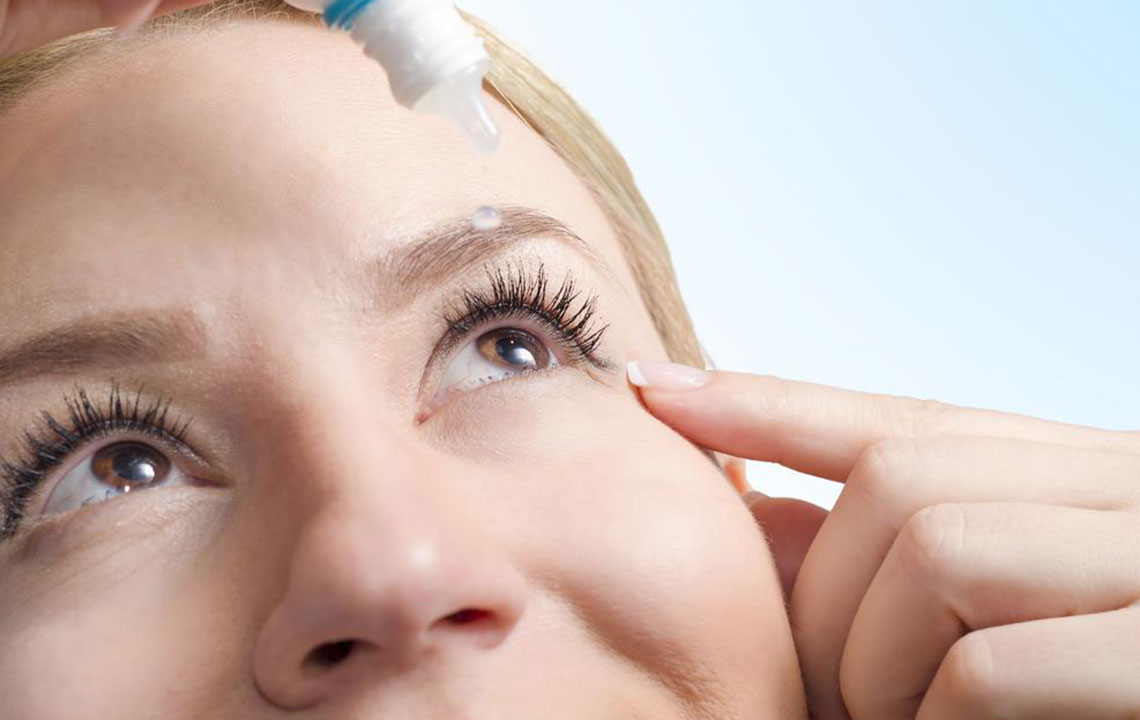The Best Eye Drops for Dry Eyes
Dry eye syndrome is the lack of adequate moisture or lubrication on the surface of the eye. It has a number of causes and, if left untreated, could have serious consequences. Eye drops for dry eyes are the most convenient way of treating dry eye syndrome.
Take proper care of the eyes and ensure taking the necessary precautions to avoid dry eyes. If one is suffering from dry eyes, they should visit a doctor and plan out a specific routine in order to treat and cure dry eye syndrome.

What causes dry eyes?
There are a number of things that can lead to dry eye syndrome. Some of them are:
- Aging
- Hormonal changes
- Entropion or ectropion
- Thyroid disease
- Environmental pollutants like dust, smoke, or dry air
- Exposure to eye irritants
- Staring at computer or TV screens for extended periods of time
- Vitamin A deficiency
- Diabetes
- Laser eye surgery
- Inflammation or damage of the tear glands
- Certain treatment options
- Prolonged use of contact lenses
- Eye infections
- Lupus or other diseases of the immune system
Symptoms of dry eye syndrome
There are a number of symptoms of dry eye syndrome. They are mentioned below:
- A burning sensation in the eyes
- Pain in the eyes
- Redness in the eyes
- Blurry vision
- Itching in the eyes
- Difficulty reading or looking at screens
- Dryness in the eyes
- Heavy eyes
- Sore eyes
The best eye drops for dry eyes
Dry eyes are quite a common problem. The best way to treat them is by using eye drops. These are some of the most used eye drops for dry eyes:
Eye drops for increasing tear production
Certain prescription eye drops for dry eyes can help treat inflammation and infection responsible for dry eyes. They help the eyes produce more tears. So, visit a doctor and get a prescription. The doctor is likely to recommend using such eye drops two times a day for optimum results.
Such eye drops are prescribed for long-term use. However, take the necessary precautions while using these eye drops as they come with a number of potential side-effects. So, it is important to consult a doctor to know whether one is allergic to any such eye drops.
Artificial tears
Artificial tears are the most common eye drops for dry eyes and are easily available at medical stores. They are useful for lubricating eyes and maintaining adequate moisture levels on the outer surface of eyes. Artificial eye drops help reduce redness of the eyes, as well as treat eye irritation arising from dry eyes.
Artificial tears are primarily of two types:
Drops with preservatives : These eye drops come with other preservatives in them that reduce the growth of bacteria in the eyes. In some instances, these eye drops can irritate the eyes after being applied and are not usually prescribed for patients with acute eye dryness.
Drops without preservatives : Eye drops without preservatives are prescribed for people with moderate to severe eye dryness. Preservative-free eye drops usually come in single-use containers, and are advised to be used up to four times a day. However, ensure consulting a physician or an ophthalmologist before taking these drops.
Autologous blood serum eye drops
These eye drops for dry eyes are made with the patient’s blood. This is typically done by taking the patient’s blood sample, separating the red blood cells and other blood components from it, and diluting it with the help of a sterile solution.
Autologous blood serum eye drops are prescribed in severe cases when the dry eye syndrome has stopped responding to any other treatment. They help cure eye infection and treat dry eyes.
Lymphocyte-function related treatment solution
This helps reduce eye inflammation and dry eye syndrome. However, this solution can only be availed through a doctor’s prescription as it has a number of potential side-effects.
Eye drops containing oil
Sometimes, dry eye syndrome may be caused because of a lack of oil layers in one’s eyes. This depleted or diminished oil layer can be treated with an eye drop that contains oil. These eye drops for dry eyes are applied under the eyelids to increase the oil supply available for lubricating one’s eyes.
Possible side-effects
Some of the possible side-effects of using eye drops are as follows:
- Eyelid swelling
- Occasional redness in the eyes
- Stickiness in the lashes
- Discomfort in the eyes
- Increased sensitivity to light
Chronic or prolonged eye dryness can be extremely painful. Don’t ignore the symptoms and consult a doctor to get the right eye drops for dry eyes!